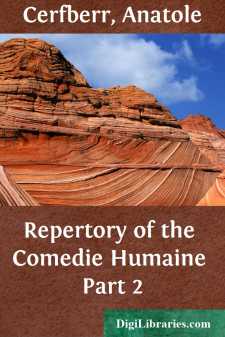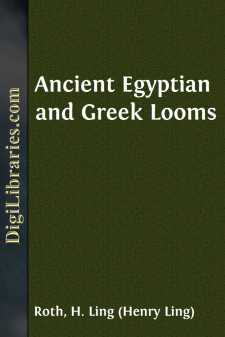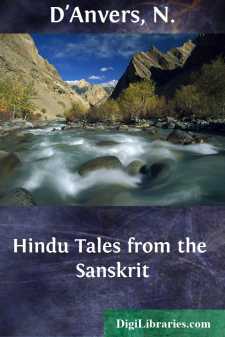Non-Classifiable
- Non-Classifiable 1768
Non-Classifiable Books
Sort by:
by:
Friedrich Frobel
INTRODUCTORY. The year 1882 was the centenary of Froebel's birth, and in the present "plentiful lack" of faithful translations of Froebel's own words we proposed to the Froebel Society to issue a translation of the "Education of Man," which we would undertake to make at our own cost, that the occasion might be marked in a manner worthy of the English branch of the Kindergarten...
more...
by:
Bernard Shaw
THE RHINE GOLD Let me assume for a moment that you are a young and good-looking woman. Try to imagine yourself in that character at Klondyke five years ago. The place is teeming with gold. If you are content to leave the gold alone, as the wise leave flowers without plucking them, enjoying with perfect naivete its color and glitter and preciousness, no human being will ever be the worse for your...
more...
Seventeen years ago the author of this work made his first trip abroad to gather material for a book on coffee. Subsequently he spent a year in travel among the coffee-producing countries. After the initial surveys, correspondents were appointed to make researches in the principal European libraries and museums; and this phase of the work continued until April, 1922. Simultaneous researches were...
more...
by:
Anatole Cerfberr
LA BASTIE LA BRIERE (Ernest de), member of a good family of Toulouse, born in 1802; very similar in appearance to Louis XIII.; from 1824 to 1829, private secretary to the minister of finances. On the advice of Madame d'Espard, and thus being of service to Eleonore de Chaulieu, he became secretary to Melchior de Canalis and, at the same time, referendary of the Cour des Comptes. He became a...
more...
CHAPTER I. Early on the morning of Easter Monday, 1871, in company with a devoted Italian pastor, I left my temporary home in the comfortable "Grand Hotel," in the little town of Pallanza, to gratify a long-felt desire of visiting that part of Europe made sacred by ages of heroic suffering and courageous endurance for faith and fatherland—the valleys of Piedmont. As we steamed up the lake...
more...
by:
Anonymous
NEW TESTAMENT STORIES THE WISE MEN'S VISIT. The birth of Jesus Christ was announced by two remarkable events: the coming of wise men from the East, and the appearance of angels to some shepherds at Bethlehem. The wise men were probably astronomers; and in watching the stars they had seen one that had led them to leave their own country, and take a long journey to Jerusalem. Most likely they rode...
more...
I. Egyptian Looms. HORIZONTAL LOOMS. IN the tomb of Chnem-hotep, at Beni Hasan, there is a wall painting of a horizontal loom with two weavers, women, squatting on either side, and at the right in the background is drawn the figure of the taskmaster. There are also figures represented in the act of spinning, etc. For the present we are concerned with the weaving only. Fig. 1.—Horizontal Loom, Tomb of...
more...
by:
N. D'Anvers
CHAPTER I Long, long ago there lived far away in India a woodcutter called Subha Datta and his family, who were all very happy together. The father went every day to the forest near his home to get supplies of wood, which he sold to his neighbours, earning by that means quite enough to give his wife and children all that they needed. Sometimes he took his three boys with him, and now and then, as a...
more...
INTRODUCTORY MY father and mother, Lord and Lady Yu Keng, and family, together with our suite consisting of the First Secretary, Second Secretary, Naval and Military Attaches, Chancellors, their families, servants, etc.,—altogether fifty-five people,—arrived in Shanghai on January 2, 1903, on the S.S. "Annam" from Paris, where for four years my father had been Chinese Minister. Our arrival...
more...
by:
Grace Greenwood
CHAPTER I. Sketch of the Princess Charlotte—Her Love for her Mother—Anecdotes—HerHappy Girlhood—Her Marriage with Prince Leopold—Her Beautiful Life atClaremont—Baron Stockmar, the Coburg Mentor—Death of the PrincessCharlotte. It seems to me that the life of Queen Victoria cannot well be told without a prefacing sketch of her cousin, the Princess Charlotte, who, had she lived, would have...
more...











